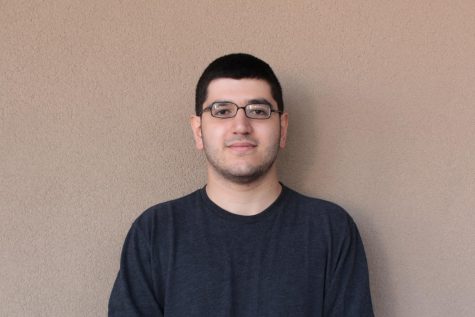The Great Race
A hundred candidates set their sights for Congress
THE CALIFORNIA CAPITOL: Upon the conclusion of the elections, the new representatives of California will gather within the California Capitol building for state legislature meetings.
New elections bring new faces. This is doubly so for California’s Congressional elections. While only one senator will have her seat challenged this election, all 53 seats in the House of Representatives have been challenged. A difficult choice stands ahead. To simplify it, below is a breakdown of the candidates that will be competing in the November election for a seat in the Congress and the right to represent the people of California.
The simplest election to understand is the US Senate elections. Each state holds two seats in the Senate, and this year one of these seats for California has been challenged. This means that the senator holding one of the seats, also referred to as an incumbent, must run for re-election against a potential challenger. In this case, the race will be between incumbent of 26 years, Dianne Feinstein and challenger Kevin de León.
Sen. Feinstein and de León are both from the Democratic Party. This marks the second consecutive year, that the Senate was contested by two Democrats. They are running on similar platforms, championing for universal healthcare, a statewide $15 minimum wage, comprehensive immigration reforms, and support for women’s right to abortion.
In terms of their goals, the two differ little, excluding the fact that Sen. Feinstein has extensive experience within Congress under her belt, including sponsorship and co-sponsorship of various acts such as Keep Families Together Act, Agricultural Workers Program Act, and RAISE the Wage Act, just to name a few.
The greatest issue regarding this election is the controversy regarding sexual scandals being thrown around. Early during the election, Kevin de León occused Sen. Feinstein of “gross misconduct” for waiting months to act on the sexual assault allegations against Brett Kavanaugh, who is a judge nominated by President Trump for the Supreme Court.
This accusation led to supporters of Feinstein digging into de León’s history, revealing that he was also too slow to react to sexual accusations against multiple lawmakers in Sacramento, one of whom previously shared an apartment with de León. Further criticism against de León has come from the Democratic Party itself, as he has been accused of unsportsmanlike behavior in trying to sully Feinstein’s name to push his campaign forward.
Moving on from the Senate, is the House of Representatives. This year, all 53 districts will hold elections for their representatives. This makes for 106 candidates, which translates to being too many for this article. For the sake of brevity, below will discuss the candidates from Districts 28, 29, and 34.
District 28 includes Glendale, Burbank, parts of Pasadena, and Sunland. The contestants here are the Democratic incumbent Adam Schiff and the Republican challenger Johnny Nalbandian. The former has served as a representative for 21 years. He has displayed an active support for Armenian Genocide recognition, a highly contested issue in Glendale. He has made his name by supporting the full implementation of the Patient Protection and Affordable Care Act and increasing the max grant limit for students to $5,730. Schiff has also held the lead in possible votes in most polls.
Johnny Nalbandian, on the other hand, has expressed great love for capitalism. He advocated against government intervention in small businesses and gun laws. He has also voiced his support of veterans and tighter border control. Despite all of this, his most unique feature is an inclusion of a recipes in his campaign website that features recipes by Nalbandian, such as “Mr. Seafood’s Baked Lobster Tail” and “Pomegranate Marinated Sturgeon.”
District 29 includes North Hollywood, Van Nuys, San Fernando, and Arleta, along with a few other locations. The candidates here are the Democratic incumbent Tony Cardenas and the Republican challenger Benito Bernal.
Rep. Cardenas has held his position for five years. He says his focus is building a healthy economy via immigration laws, that allow immigrants to further utilize their skills and knowledge in the American market. He is also very passionate about animal rights, as it is the first issue mentioned on his campaign website. His campaign, however, has been sullied by a recent accusation against him, alleging that in 2007 he molested a 16-year-old girl in his car after having her drugged. No public evidence has been provided on this case, and Cardenas is still holding a lead on his opponent, according to several polls.
Benito Bernal is Rep. Cardenas’ opposition and has placed a great emphasis on improvement of education and taxes. For one, he champions for the increase in resources provided to special needs students and wishes to increase funding for career technical education. Bernal has also addressed the high tax rates in California, stating that despite it being one of the highest taxing states in the nation, it suffers greatly from issues regarding homelessness, traffic, and infrastructure.
Finally, District 34, which includes Downtown Los Angeles, Chinatown, and Eagle Rock, among other locations, will hold a unique race. On one side is the Democratic incumbent Jimmy Gomez and on the other is a young Green Party challenger, Kenneth Mejia.
Rep. Gomez has been in the House for one year. He has aided education reform with the GREAT Act, meant to streamline the process of giving grants. His economic interests fall against President Trump’s 2019 economic plan, a fact he has made very clear by saying “President Trump’s budget falls woefully short in meeting the needs of working families.” Gomez intends on countering this by establishing his own economic plan, although details regarding it remain vague.
His opponent is a young Green Party member, Kenneth Mejia. Mejia takes a more socialist stand on many issues, promising to work on free tuition by using the Wall Street Speculation Tax. Meaning, he intends to tax the stock market and use the taxed money to provide free college. He also voiced an interest in revitalizing the middle class by having “job guarantees” and a minimum $12,000 guaranteed income for anyone who makes below $150,000 annually.
Mr. Mejia also intends to combat the GOP’s supposed attempt to remove the Affordable Care Act and make universal healthcare a human right, thus providing a universal health care across his congressional district. He has established his platform on the persona of a man-of-the-people, vouching for the betterment of financially depleted communities.
These are just some of the candidates preparing for the election. Some 100 other candidates are still running across the state, each with their own agendas and policies. In order to make an educated vote, citizens are encouraged to research their candidates in detail in order to understand what issues each is willing to tackle, in order to make an educated vote. After all, these elections can redefine the future of California as a state.


